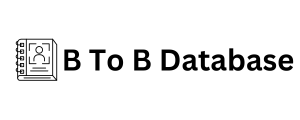10 Awesome Tips About Special Database From Unlikely Websites
Databases are essential tools for organizing and storing information. They are used in virtually every industry, from healthcare to finance to e-commerce. However, not all databases are created equal, and some require special considerations. In this post, we’ll share 10 tips about special databases that you might not find on the most likely websites.
Choose the Right Type of Database
- Different types of databases have their unique features and advantages. For example, a relational database is ideal for storing structured data, while a NoSQL database is better for unstructured data. Make sure you choose the right type of database for your specific needs.
- Consider the Scalability: As your data grows, your database needs to be able to handle the increased load. Make sure your database can scale horizontally or vertically to accommodate your growing data needs.
- Use Indexing to Improve Performance: Indexing is a powerful tool for improving database performance. By creating indexes on frequently queried columns, you can speed up query times and improve overall database performance.
- Regularly Backup Your Database: Backing Whatsapp Mobile Number List up your database regularly is critical to ensure that you don’t lose valuable data in case of a disaster. Make sure you have a backup strategy in place and test it regularly.
- Monitor Your Database: Monitoring your database is essential to identify performance bottlenecks, security vulnerabilities, and other issues. Use tools like Nagios, Zabbix, or Datadog to monitor your database and get real-time alerts when something goes wrong.
Optimize Query Performance
- Slow queries can significantly impact your database performance. Optimize your queries by using indexes, limiting the number of joins, and minimizing the amount of data returned.
- Use Encryption to Secure Data: Encryption is an effective way to protect sensitive data from unauthorized access. Use encryption to protect your data at rest and in transit, and make sure you have a robust key management strategy in place.
- Use Replication for High Availability: Replication is a powerful tool for ensuring high availability of your database. By replicating data across multiple nodes, you can ensure that your database remains available even if one node fails.
- Use Caching to Improve Performance: Caching is a useful technique for improving database performance by reducing the number of queries to the database. Use caching tools like Redis or Memcached to cache frequently accessed data.
- Choose a Reliable Database Provider: Finally, choosing a reliable database provider is critical to ensure that your database remains available and secure. Consider factors like uptime, performance, scalability, and customer support when choosing a database provider.
In conclusion, special databases require special B to B Database attention. By following these ten tips, you can ensure that your database is reliable, performant, and secure. Remember to choose the right type of database, consider scalability, monitor your database, optimize query performance, use encryption and replication, and choose a reliable database provider. With these tips in mind, you’ll be able to build a robust and effective database that meets your specific needs.

